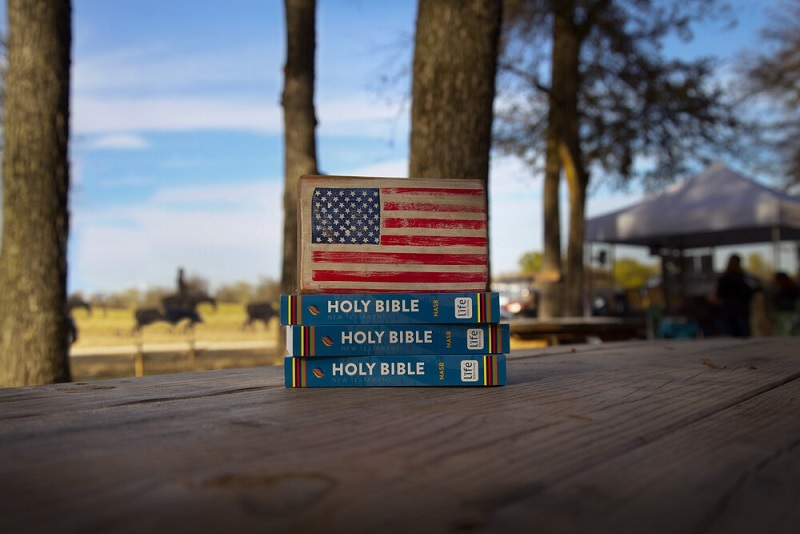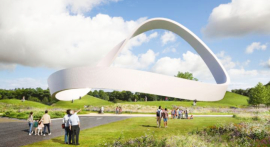
California preacher Mario Murillo drew from the profound spiritual heritage of the nation's foundation to maintain that "America is a land of covenants."
In his August 4 blog, Murillo wrote about the early European settlers who risked crossing the oceans in search of new homes where they might openly worship Christ. He mentioned the kind of spirit and fortitude they had as something the current Church in America has to rediscover.
"The American church desperately needs a mass renewing of the inner man," he said, emphasizing the promise to every believer in 2 Corinthians 4:16-18.
"We cannot dwell on the impossibility of restoring America," he added. "God is for us. God is upon us."
Following that, Murillo said that American history is being obscured not because of racial problems, but because the devil is aware of God's testimony that runs through the nation, which has resulted in it receiving God's blessings.
Thus, with an impassioned plea, he said, "Church! We have been here before. We've been in worse spots than this. We have won in the past and we can win again. And we are going to win, by the power of God. God just needs to turn on the fire, and stir that fire again in our souls! "
Based on his description, Murillo may be referring to the Mayflower immigrants who formed the "Mayflower Compact," which, according to History, was the New World's first self-government compact.
These pilgrims were a group of dissatisfied Protestant Englishmen who chose to escape the corruption they saw in England by sailing out on ships in search of a better place to start over, with the freedom to worship God as they please and without the fear of government attempting to control them.
Today, about 10 million Americans and 35 million people worldwide are said to have descended from these pilgrims.
It is this contrast between the Mayflower pilgrims' yearning for a life of purity and the blatant immorality in modern America that Murillo wished to address in all his writings about reclaiming the nation's soul.
"No devil and no perversion can stand before the Body of Christ. Not when She shakes Herself from Her division and Her confusion, and Her lack of memory," he wrote.
Fire, not confidence
Murillo believes that fire, as a representation of God's purging power, is what the Church needs instead of "confidence."
"Fire will burn out indecision," he said. "It will burn out confusion. It will allow you to put all the controversy on the shelf, and then resume the urgent act of praying the right words: 'Lord, the nation is in serious trouble. You called me, You trained me, You raised me up for a specific purpose, and I cannot be distracted by all that the enemy is doing.'"
Consequently, believers who bear this fire will not be influenced by what they see around them.
As an example, Murillo said that whenever he enters a tent crusade packed with wheelchairs and crutches, as well as some of the most horrific sufferings, he will not believe what his eyes perceive in the natural. Rather, upon entering, he sees all of these ill people being healed and delivered by God's power.
Murillo expanded on his argument by quoting Sun Tzu's The Art of War, which says,
"Warriors of old first placed themselves beyond the possibility of defeat, and then waited for an opportunity of defeating the enemy."
The principle there is for Christians to evaluate everything from a place of victory rather than defeat.
This has also been a recurring theme in Murillo's commentaries about all the anti-Christ and anti-God policies that are attempting to silence the voice of Christianity in America.
With fire in his heart, he would continue preaching passionate words like, "If we become incapable of tolerating the condition of America-if we remember our families and our God, then we can do battle and reclaim our nation."

























